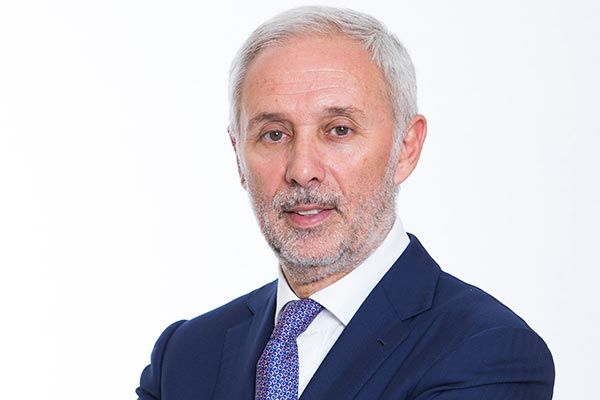
Miguel Carmelo
President of the European University of Madrid
“Education should be compulsory up to eighteen years of age. This would be transformational because it would force education systems to be much more practical and people could get an education while they work”
Should entrepreneurship be further encouraged throughout all stages of education?
Young people are talking more and more about entrepreneurship, as opposed to working in a big company and having a good job. That is because they are the postcrisis generation. Having said that, society has to train them. Society should encourage the skills that ensure entrepreneurship is well received and rewarded. Innovation and entrepreneurship are capacities that put good ideas into practice, and they require hard work, organization, and financing. There has never been a lack of creativity, even at the worst of times. We need innovation and entrepreneurship.
Should the university system be more public or more private?
Universities have to be good, whether they are public or private. Where can public universities compete? On proximity and price. Public universities are closer and cheaper—even free. In contrast, private universities are neither nearby nor free, so they have to compete on other aspects.
What should a state pact on education deal with?
An agreement should be reached on what education means in the twenty-first century: it cannot just be about knowledge. It’s about knowledge and skills, plus some values. These values must be free from political or religious doctrine in some way, although outside of that there is space for each person to gain an extracurricular education in matters such as religion. The system has to allow people to choose whether or not they study religion, as well as which religions to study. Moreover, there should be different itineraries available for acquiring skills because people develop at different rates. Education should also be compulsory up to eighteen years of age.
This would be transformational because it would force education systems to be much more practical and people could get an education while they work. This is known as dual education. Another objective is for education to have an international perspective, with a big boost for bilingualism. Just as in the Middle Ages, when educated people could speak their vernacular language and Latin, today people need to be able to speak their maternal language and English, since English is the Latin of the twenty-first century, a fact that is beyond doubt. This would also highlight the asset that Spain has in its four languages. We must defend the cultural richness acquired with bilingualism in Catalonia, Galicia, and the Basque country, for example.
How does education change the need to recycle ourselves several times over within our lifetime?
People are going to dedicate a lot more time to education: they are not just going to stop studying at twenty-two. This is obviously what we have come to call lifelong learners: people who are going to be learning throughout their lives. People will study master’s degrees more than once because they will need to recycle their skills, and change jobs or profession, and they are not going to go to class to listen to a teacher like they did when they were eighteen, because now they can make use of technologies. Professors are no longer needed except for practical work, tutoring, and mentoring.
